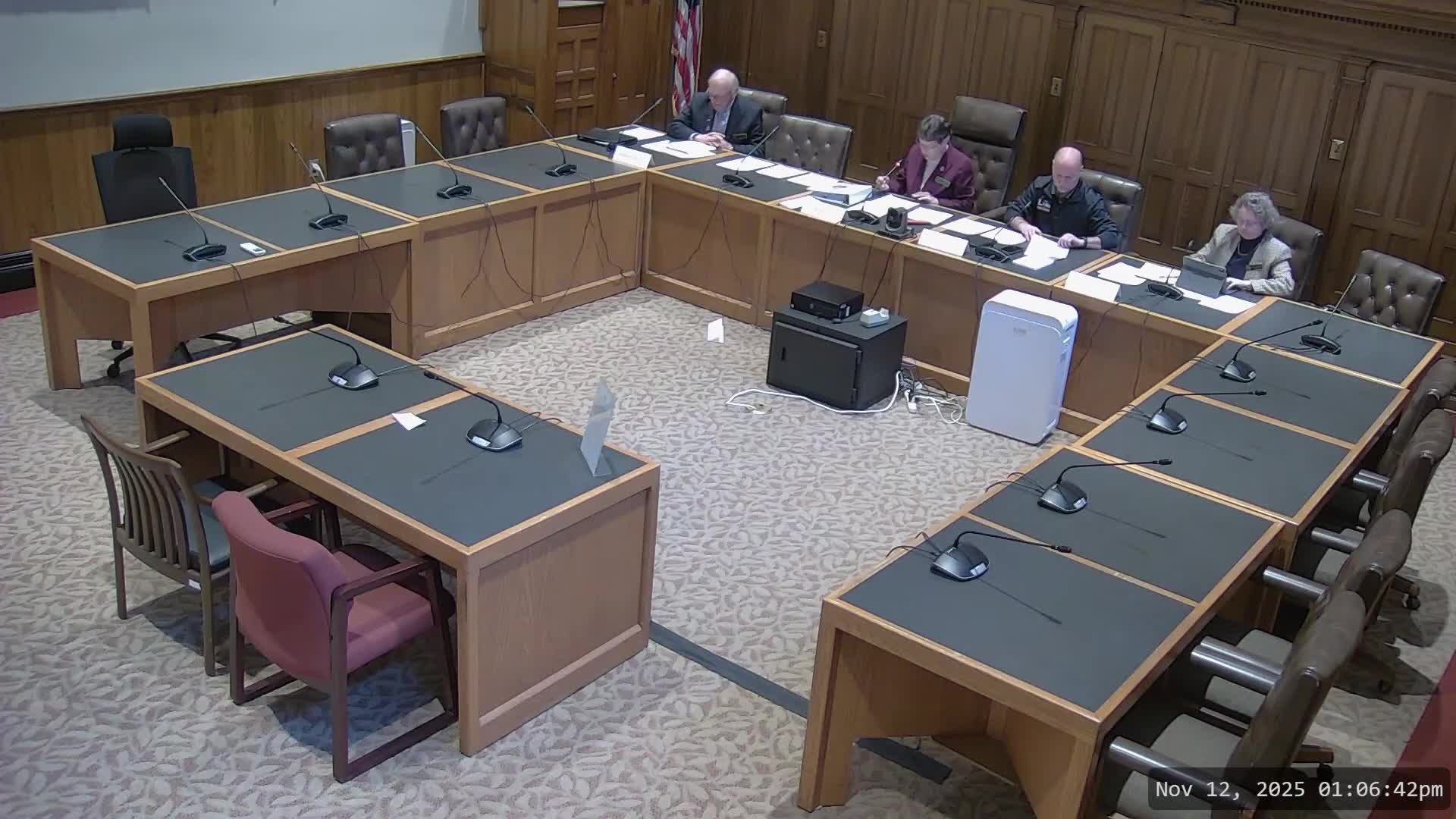NH higher-education leaders tout transfer gains, warn of shrinking enrollment and budget strain
Get AI-powered insights, summaries, and transcripts
Subscribe
Summary
Chancellors from the University System of New Hampshire and the Community College System told a legislative study committee they have expanded transfer pathways and launched a direct-admit outreach, but they cautioned a shrinking college-age population, federal policy changes and a projected $10 million state funding cut could force program and job
Catherine Provencher, chancellor of the University System of New Hampshire, and Mark Rubinstein, chancellor of the Community College System, told the Legislature’s public higher education study committee on the annual report that the two systems have expanded student transfer pathways and are working to streamline admissions between the sectors.
"We're now up to over a 100 universal pathways," Rubinstein said, later noting his most recent check put the number closer to 130 and that last academic year community college graduates transferring to the university system increased by about 30 percent. Provencher described a new direct-admit outreach that automatically notifies community-college graduates who meet GPA criteria and connects them to university enrollment staff.
The report stems from recommendations of Governor Sununu’s task force on public higher education, the chancellors said. The proclamation read at the meeting also marked the Community College System of New Hampshire’s 80th anniversary and cited the system’s seven colleges, four academic centers and service to "over 21,000 learners annually." The chancellors said the work required by the task force is iterative and depends on resources and staffing.
Committee members pressed the chancellors on possible 2+1 or three-year bachelor’s degree models — an affordability option some campuses are piloting. "With 4-year programs, the first 2 years typically align," Provencher said, but she added that 3‑year models require careful curriculum design so the combined years meet learning outcomes; she cautioned fields such as nursing have intensive accreditation and credit requirements that limit shortening some programs.
Technology and administrative alignment was another focus. Provencher said the university system is implementing Workday as its enterprise resource planning (ERP) platform, a multiyear effort that she described as "tens of millions of dollars over 5 to 6 years." The community-college system has not yet joined that ERP project because of funding and timing; both systems do share student-facing tools such as Canvas that ease student navigation.
Enrollment and budget pressures framed much of the discussion. Provencher said UNH enrollment was 13,013 and "sliding," with total enrollment down about 3.5 percent this year. She warned of a projected $10 million reduction in state support for fiscal 2027 and detailed steps being taken: holding positions, offering early buyouts, reducing faculty and administrative roles, and reviewing facility footprints.
Lawmakers and witnesses raised concerns about student supports and program continuity. Representative Wayne Burton asked whether disability accommodations transfer between institutions; Rubinstein said each receiving institution reviews documentation and that accommodations are not simply transferred automatically. On graduate programs, Rubinstein pointed to federal changes — including loan limits and potential reductions in international enrollment — that could reduce demand for some master’s programs.
Committee members proposed future agenda items that include accreditation-standard changes at the New England Commission of Higher Education, the Manchester collaborative campus work, rural health workforce initiatives, and stronger integration between K–12 and higher education. Steve Appleby, director at the New Hampshire Department of Education, recommended more deliberate outreach so higher-education representatives attend regional superintendent meetings to align curriculum and recruitment.
The committee approved the Sept. 19 minutes and accepted the governor’s proclamation; no formal policy votes were taken on the topics in the report. The committee asked staff to consider suggested stakeholders for future meetings and scheduled follow-up work.
